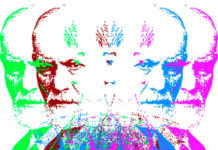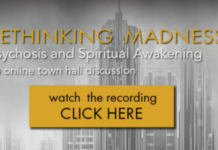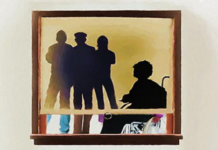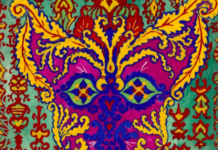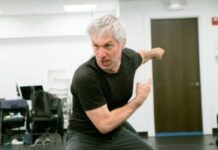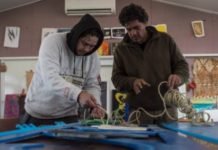Study Finds Music Therapy May Be Effective in Clinical Practice
In a new study published in The Journal of Child Psychology and Psychiatry, Professor Sam Porter and co-authors, present the results of a music...
Saved by the Book: Can Reading be More Effective than Medication or Therapy?
“Studies show that self-help books can resolve readers’ depressed moods, change ingrained thought patterns, and instill a renewed zest for life – as long as the advice within is scientifically sound,” Elizabeth Svoboda writes for Aeon. “The literature we choose to guide us should supply proven advice we can trust. But it should also, as Franz Kafka wrote, be ‘the axe for the frozen sea within us’, bludgeoning us in ways that awaken us to the extraordinary.”
Psychodynamic Therapy Revealed to be as Efficacious as Cognitive Behavioral Therapy
Meta-analytic study finds that psychodynamic therapy outcomes are equivalent to those of CBT and other empirically supported treatments.
Research Shows Art Courses Can Improve Mental Wellbeing
From PsyPost: A new study has found that a course of arts-on-prescription can provide a significant improvement in mental wellbeing, including in those with very...
Therapeutic Video Games?
King5 News reports on video games that are being designed by psychologists to help players deal with emotional problems like anxiety and depression. Cheri...
Music Therapy Interventions Reduce Depression Symptoms in Dementia
Therapists can use music to meet the emotional and social needs of individuals with dementia.
Mad In America Film Festival In The News
Boston.com has published an article about the Mad In America Film Festival, running through this weekend in Medford, Massachusetts. "Making people rethink psychiatry —...
“Can Madness Save the World?”
Writing for CounterPunch, Paris Williams writes that when an individual is experiencing what has been termed “psychosis,” it is important to recognize that this may also be the manifestation of a breakdown in their larger social groups, the family, society, and even the species.
“Constructing the Modern Mind”
Psychiatrist and historian George Makari tries to illuminate the historical evolution of our understanding of the conscious mind and how it relates to the...
Creatively Managing Voice-Hearing Through Spiritual Writing
I am a psychiatric survivor of over thirty-six years. Since my nervous breakdown in 1978, I have undergone multitudinous experiences ranging from the subtly humiliating to the horrifically debilitating at the hands of incompetent psychiatrists and psychopharmacologists who, in the name of medicine, did more harm than good.
Birthday Letter: Sylvia Plath and “Daddy”
In this piece for The Paris Review, Belinda McKeon analyzes the poetry and letters Sylvia Plath wrote in the few months just before her suicide.
Webinar Discussion – Rethinking Madness
A free recording of last week's webinar anchored to Phil Borges' Crazywise, a documentary exploring alternative approaches to mental health, is now available. Over 4,000 people...
What Role Can Video Games Play in Psychiatric Treatment?
-Psychiatry Advisor reviews the scientific evidence about using video games and virtual reality tools in psychiatric treatment.
“Mindfulness at Risk of Being ‘Turned into a Free Market Commodity’”
The Guardian reports growing concerns from the Buddhist Society conference: “Jon Kabat-Zinn, who created the Center for Mindfulness in Medicine at the University of Massachusetts medical school, warned last week that some people feared a ‘sort of superficial ‘McMindfulness’ is taking over, which ignores the ethical foundations of the meditative practices and traditions from which mindfulness has emerged, and divorces it from its profoundly transformative potential.’”
Sunday Morning Channel: “Has Psychiatry Silenced God?”
-The Edinburgh International Book Festival hosted a discussion exploring religious beliefs, creative inspiration, and whether hearing "the voice of God" should be regarded as a symptom of mental illness.
Dual-award Winning Play and Film About Human Beings, not Psychopathology
[M]y play, SHADES, and my film, "Is Anybody Listening?" are about people who have experienced major troubles, even trauma or other tragedies, who have dark secrets that torment them, but who use connection, love, humor, and creativity to come through, even to heal. And no one in the play or the film is pathologized.
The Enduring Myth of the Mad Genius
From Wellcome Collection: It has long been assumed that great writers and artists must be touched by madness. However, no link between artistic talent and...
Arts Participation May Improve Mental Well-Being and Social Inclusion
Introductory arts courses at Open Arts Essex show improvements in mental well-being and social inclusion for individuals with mental health challenges.
Using Shakespeare to Ease the Trauma of war
From The New York Times: Learning Shakespeare can be a valuable way for veterans to begin to understand and heal from the trauma of war.
Article →
Hip Hop Therapy Psychiatrists Ask Media to Keep It Real
The Guardian and other media outlets ran articles about two psychiatrists promoting "the use of hip-hop as an aid to the treatment of mental...
“Group Drumming Bangs Away at Anxiety and Depression”
“Prozac? Actually, percussion.” Researchers in the UK found that a ten-week drumming intervention significantly improved anxiety and depression for people seeking mental health treatment....
Creative Approach to Mental Health Underfunded
From Stuff: Ōtautahi Creative Spaces, a center that offers art therapy workshops, was recently set up in response to the earthquakes in Christchurch, New Zealand, where...
From Surviving to Thriving: Unleashing Creativity
There were days that I’d wake up and all I could do was cry for no particular reason, just another miserable day of withdrawal. However, the idea of taking photos would get me out of the house. Especially on those days, the absolutely only thing that would get me to move at all was the idea of taking photos. One particular day, I was just crying, crying, crying, and as soon as I got to a beautiful spot that I loved, I stopped crying, took photos, and felt at peace. I even found that the days I felt the worst were the days I took the best photos.
“The Computer Will See You Now”
The Economist reports on "Ellie," a programmed, virtual psychologist designed by researchers at the Institute for Creative Technologies in Los Angeles, who has a...



